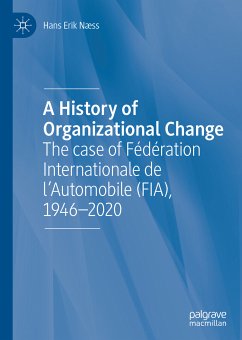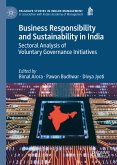- Timothy Robeers, Professor of Communication Sciences and Assistant Editor for the Journal of Motorsport History and Culture, Antwerp University, Belgium
"Jean Todt, President of FIA, the world governing body of motorsport has said that much as many love the sport a worldwide health pandemic reminds us that "it is not essential for society", that "a new deal" is needed for the future. This study, combining historical sociology with organizational analysis and theories of institutional logics, explains how the FIA has developed since its formation in 1904 as a special hybrid entity characterised by what Hans Erik Næss calls "organisational emulsion", a previously unidentified model or process of organisational change. If you want to understand how SGBs (Sport Governing Bodies) have survived, some with an adaptive potential promising positive change, read this case study."
- Alan Tomlinson, Professor of Leisure Studies, University of Brighton UK
This book is the first independent exploration of the Fédération Internationale de l'Automobile's (FIA) institutional history. Virtually unexamined compared with similar institutions like the FIFA and the IOC, the FIA has nevertheless changed from being a small association in 1904 to becoming one of the world's most influential sport governing bodies. Through chronologically organised chapters, this book explains how the FIA manages to link together motorsport circuses like Formula 1 with the automotive industry and societal issues like road safety and environmental sustainability. In an exciting narrative spanning seven decades, it reviews the FIA's organisational turning points, governing controversies, political dramas and sporting tragedies.
Considering the FIA to be a unique type of hybrid organisation characterised by what the author calls 'organisational emulsion', this case study contains theoretical innovations relevant to other studies of sport governing bodies. It makes an empirically grounded contribution to the research fields of institutional logics, historical sociology and sport governance.
Dieser Download kann aus rechtlichen Gründen nur mit Rechnungsadresse in A, B, BG, CY, CZ, D, DK, EW, E, FIN, F, GR, HR, H, IRL, I, LT, L, LR, M, NL, PL, P, R, S, SLO, SK ausgeliefert werden.









